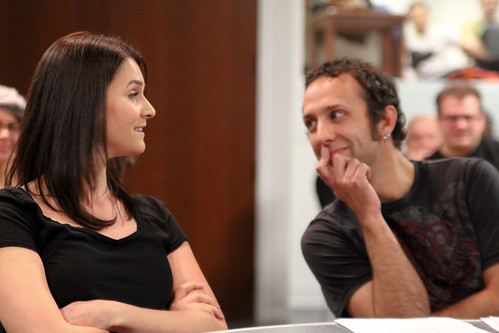Content marketing is defined as:
the creation or sharing of content for the purpose of engaging current and potential consumer bases.
We’re all in the marketing biz now, defined by the content that’s available about us online. Whether it’s a post about World of Warcraft in a gaming forum, a Facebook complaint about teenagers at the mall, or a well-sourced article in a scholarly journal, our identities are a function of the web. We may be very different people in real life, but for potential employers, customers, friends or romantic partners, first impressions are formed by what pops up during a Google search.
Unless you’re living off the grid in some Nevada desert, this information, this shadow-version of your self exists in cyberspace. Details about your life are posted online (like that you finished in 122nd place in the local fun run), without you probably even being aware of it.
You could rage against this loss of identity or you could do something about it. Content marketing is doing something about it. Instead of just being a viewer of content, start actively creating it. Register a site in your own name. Create a blog. Tweet, comment on stories and contribute to online forums.
But do so consciously. Be aware that you’re shaping your personal brand online. Think about the searches that people will be doing in the future and how you want to appear in them. Don’t let other people define you – use content marketing to shape your image online.




